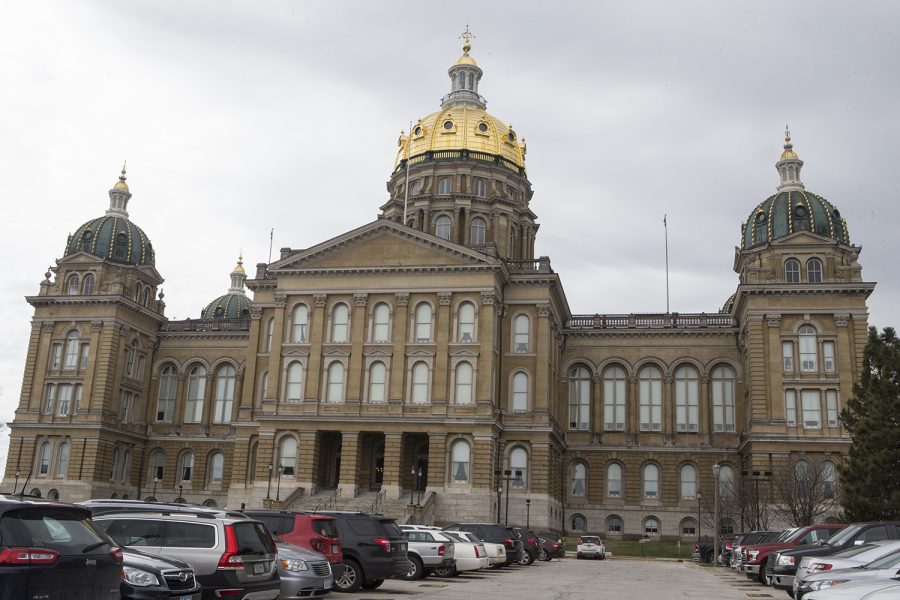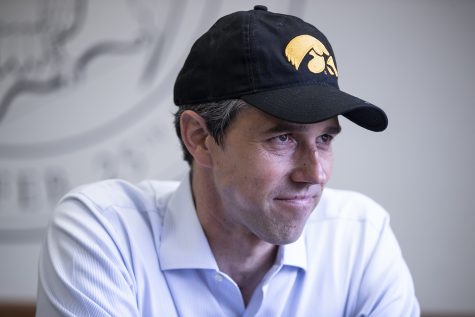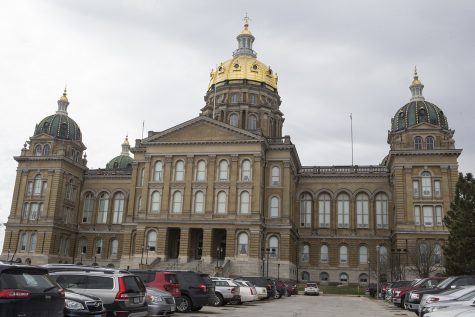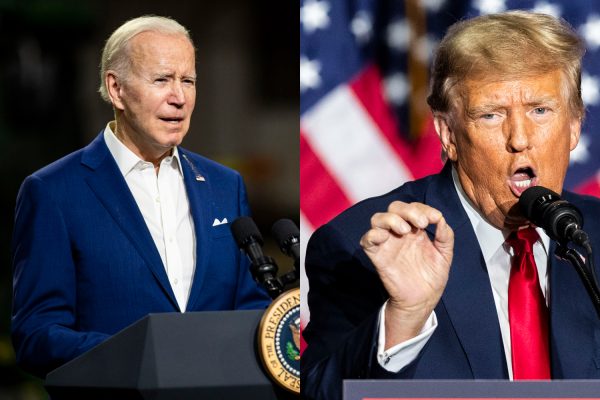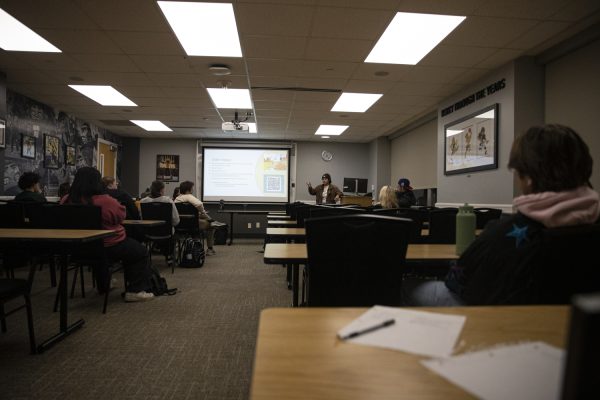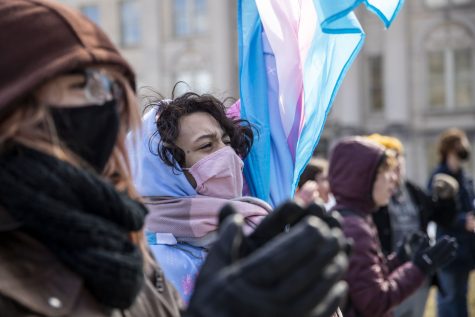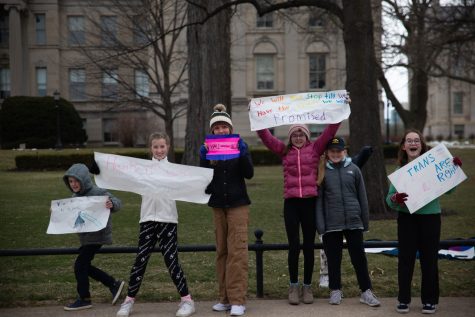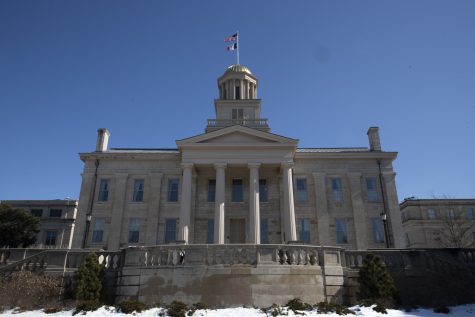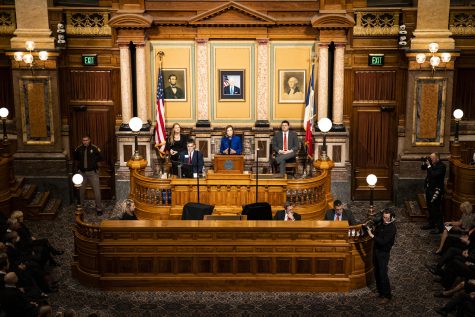Editorial: Iowa can’t abandon its students with budget cuts
Unnecessary reductions of financial aid for in-state college students threatens the future of the Hawkeye State.
The Iowa State Capitol building is seen in Des Moines on April 9, 2019.
September 17, 2019
The next legislative session is months away, so Iowa lawmakers have until January 2020 to put something critical on their policy agendas: supporting student success for those enrolled in any of Iowa’s three public institutions of higher education.
The regents’ fiscal 2021 funding request displays a concerning departure from that goal. After two years of state-appropriations requests including language asking Iowa lawmakers to support financial aid for the regent universities’ resident undergraduates, the proposal for an $18 million boost to the universities’ general funds casts that stipulation aside.
As the regents have consistently voted to hike tuition rates in recent years, shifting the burden of funding higher-education expenses to students and families, they have also emphasized to Iowa lawmakers the need to increase financial aid to offset that cost.
Without adequate support for financial aid, the students with the highest need will only struggle more to afford higher education — an opportunity that opens doors to lifelong success. Furthermore, higher education paves the way for Iowans to become skilled contributors to the state’s workforce, which also happens to be a GOP legislative priority.
Although the regents have requested more support for financial aid in the last two years, the state in fiscal 2019 defunded the universities instead, and for fiscal 2020 opted to restore some of that funding but not toward financial aid specifically.
When the regents convened the tuition task force in 2017 to contemplate solutions to the issue of dwindling state funding and rising tuition, they pointed to Iowa’s ranking as last of the 50 states in the U.S. for state-awarded financial aid. The regents had hoped that, among taking other steps, the financial-aid language in the appropriations requests would achieve their goal of improving that ranking.
On its face, it sounds logical — surely Iowa’s GOP-dominated Legislature can’t defund the universities when they know they’re directly denying contributions to financial support for Iowa taxpayers’ children, right?
The regents are now asking for appropriations to support “student-success initiatives,” which includes financial aid and other priorities to improve outcomes for Iowa’s regent-university students, seeming to pitch its funding request more broadly in search of something lawmakers will support.
Iowa lawmakers have been predictable in displaying a disregard for the citizens of this state — especially its youngest residents who are the state’s future. It’s time those in power at the Statehouse back that same priority of ensuring student success.
Public education does not solely exist for the benefit of the student. Its primary purpose of educating young people is to improve the communities they inhabit. Iowa thrives on nurturing a populace that has the resources to lead our state for the rest of the 21st Century. When Iowa cuts back on higher education in any form, the whole state suffers the consequences.
Our communities, especially rural areas experiencing declining populations, cannot sustain themselves without retaining their brightest students. If young Iowans can’t find affordable, high-quality education within the borders of the Hawkeye State, they’ll be forced to go elsewhere. Our future leaders of business and government do not have any incentive to stay here if it is fiscally irresponsible for them to do so.
State politicians must rely on bold assumptions that taxpaying parents will continue to cast ballots for them each election cycle despite refusing to subsidize their children’s education. It’s up to the people of Iowa to demand adequate funding for the scholars who will build our state’s future.
Editorials reflect the majority opinion of the DI Editorial Board and not the opinion of the Publisher, Student Publications Inc., or the University of Iowa.
Editorial board members are Marissa Payne, Brooklyn Draisey, Elijah Helton, and Taylor Newby.



